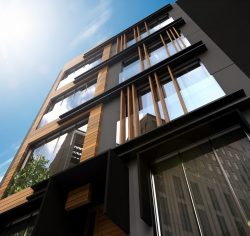Finally got that job promotion you’ve been waiting for? Maybe you and your partner and ready to start a family or take the next big step – could this be the year to buy into the real estate market?
A few things you should consider when looking to buy a home in 2019 are:
Don’t be afraid to look at multiple listings and to make various offers. Some newbie homebuyers think that they have only to put an offer in one house at a time. False, you can put as many offers in. The one thing to be cautious about is if you start getting selected; therefore, consider the homes you put offers in. Are you likely to get chosen over another potential buyer? Or is this home one where there will be a bidding war? Consider this and remember, it’s okay to place multiple offers on different listings.
Don’t be discouraged if the home you “wanted” get bought by someone other than you. The market is hot right now, and sometimes, realtors selling will price a home low to start a bidding war. Don’t be discouraged if that lovely two-car garage with the home theatre system gets purchased above asking because chances are there is another home for you about to enter the market.
 Know your budget and STICK TO IT! Sometimes we think that we can make accommodations and work a higher mortgage into our budget. As a homeowner and one whose friends have also bought homes – don’t fall into this trap. Do you want to buy a home and find yourself “house poor”? Or do you want to buy a home within your budget and not have to worry about money constraints?
Know your budget and STICK TO IT! Sometimes we think that we can make accommodations and work a higher mortgage into our budget. As a homeowner and one whose friends have also bought homes – don’t fall into this trap. Do you want to buy a home and find yourself “house poor”? Or do you want to buy a home within your budget and not have to worry about money constraints?
The real estate market is one that requires patience, understanding and resilience. Don’t be discouraged if your first home isn’t exactly how you envisioned your home being – buying a home is a great way to build equity and invest in your future long term.



 that there are certain homeownership costs that will continue even after you have received your keys?
that there are certain homeownership costs that will continue even after you have received your keys?



 The housing market (depending on your city) may feel like it’s always on the rise or that there are never enough homes or choices available. While this may feel like it at times, the reality is that there is a paradigm that shifts when it comes to the housing market. There are times where the buyers’ market is hot, and those looking to get into the market can benefit greatly; however, when it is a sellers’ market, those very people may find themselves struggling to find that perfect home, but they may also find themselves paying a lot more.
The housing market (depending on your city) may feel like it’s always on the rise or that there are never enough homes or choices available. While this may feel like it at times, the reality is that there is a paradigm that shifts when it comes to the housing market. There are times where the buyers’ market is hot, and those looking to get into the market can benefit greatly; however, when it is a sellers’ market, those very people may find themselves struggling to find that perfect home, but they may also find themselves paying a lot more. Pictures can be deceiving, which is why it is crucial to not only visit the house (preferably more than once) but also to have it inspected by a certified home inspector. Sometimes a fresh coat of paint can cover more than a scratch, which is why it is vital to have experience on your side. The last thing you want to do after spending all your savings and investments is to find out that your “new” home actually requires hundreds and thousands of dollars in repairs and upgrades. Don’t be afraid to ask questions and don’t be scared to go back to check the house out with a fine-tooth comb.
Pictures can be deceiving, which is why it is crucial to not only visit the house (preferably more than once) but also to have it inspected by a certified home inspector. Sometimes a fresh coat of paint can cover more than a scratch, which is why it is vital to have experience on your side. The last thing you want to do after spending all your savings and investments is to find out that your “new” home actually requires hundreds and thousands of dollars in repairs and upgrades. Don’t be afraid to ask questions and don’t be scared to go back to check the house out with a fine-tooth comb. Before one buys a home, it’s essential to ensure one has the finances to do so. Why? When it comes to buying a home, one of the first things to get the process rolling is having the down payment.
Before one buys a home, it’s essential to ensure one has the finances to do so. Why? When it comes to buying a home, one of the first things to get the process rolling is having the down payment. They must first be aware of their financial condition. First, look at your savings and see how much you can afford to invest in a house. Purchasing a home involves making a down payment before you can take any loan. Careful planning with your savings will tell you how much you can use for a mortgage payment. Have a look at various neighbourhoods to estimate the cost that might incur in transportation etc.
They must first be aware of their financial condition. First, look at your savings and see how much you can afford to invest in a house. Purchasing a home involves making a down payment before you can take any loan. Careful planning with your savings will tell you how much you can use for a mortgage payment. Have a look at various neighbourhoods to estimate the cost that might incur in transportation etc. Search for different sites within the neighbourhood that has everything within walking distance. The farther the home is from the metropolitan, less is the cost. While purchasing away from the city center, don’t just go by the cost of the house. Instead consider other factors like commute options, hospitals, markets, and schools. Include the additional cost you might incur later and then, take an informed decision.
Search for different sites within the neighbourhood that has everything within walking distance. The farther the home is from the metropolitan, less is the cost. While purchasing away from the city center, don’t just go by the cost of the house. Instead consider other factors like commute options, hospitals, markets, and schools. Include the additional cost you might incur later and then, take an informed decision.